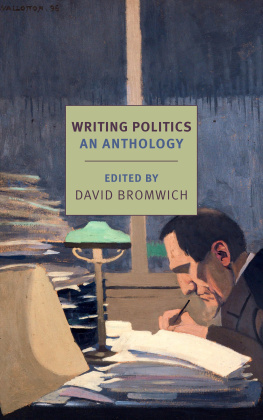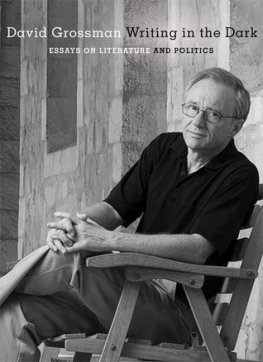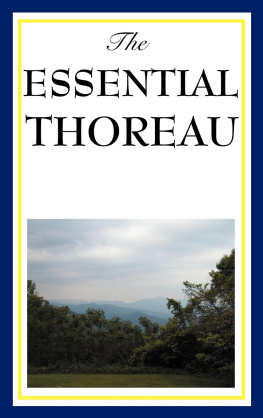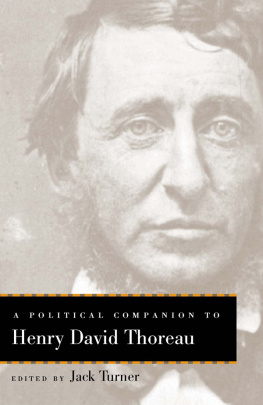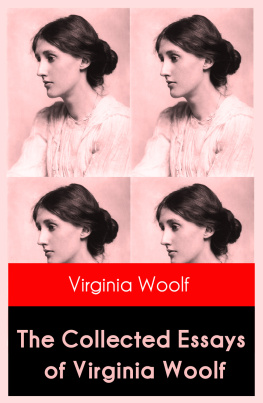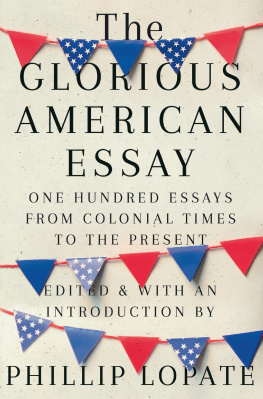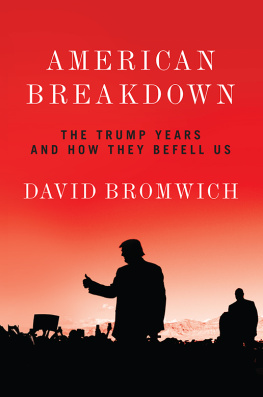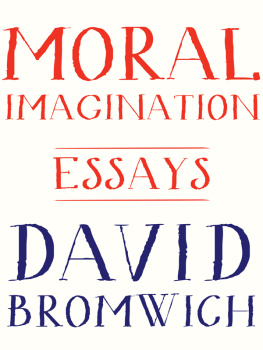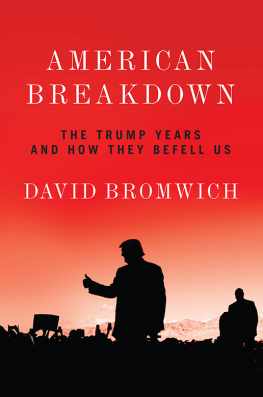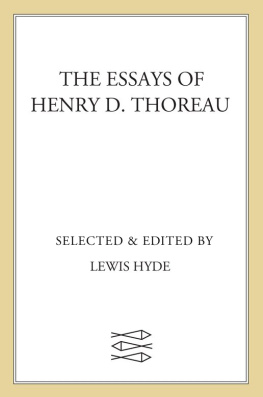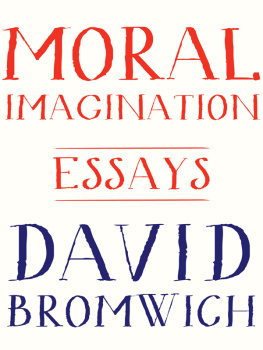DAVID BROMWICH is Sterling Professor of English at Yale University. His books include Hazlitt: The Mind of a Critic, Disowned by Memory: Wordsworths Poetry of the 1790s, The Intellectual Life of Edmund Burke, and, most recently, American Breakdown: The Trump Years and How They Befell Us. His collection of essays on modern poetry, Skeptical Music, won the PEN/Diamonstein-Spielvogel Award for the Art of the Essay in 2002. His articles on contemporary politics, the war on terror, and the fate of civil liberties in the United States have appeared in Dissent, The Nation, HuffPost, The New York Review of Books, antiwar.com, TomDispatch, Mondoweiss, Guernica, and the London Review of Books.
JOHN TRENCHARD AND THOMAS GORDON
Catos Letters, no. 45 (1721) and no. 60 (1722)
J OHN T RENCHARD (16621723) and T HOMAS G ORDON (16911750) addressed readers in the aftermath of the Glorious Revolution when theoretical rearmament against a possible Jacobite resurgence could still seem necessary. They wrote from a consistent distrust of monarchical prerogative and a radical belief in the good of a free press; deprecated the very idea of a standing army; and cherished an unshakable faith in the right of individual conscience against clerical authority. Their periodical The Independent Whig and its sequel, Catos Letters, espoused the ideals of a liberal commonwealth; their pungent language and salutary suspicion of power influenced the framers of the American constitution. The numbers printed here touch on characteristic themesthe natural equality of men, and the fitness of the people for self-governmentbut one should not extend an overgenerous interpretation to mentions of the people: a group in which Trenchard and Gordon are unlikely to have included the illiterate or persons without property. Gordon outlived his collaborator, and devoted his later years to translations of, and commentary upon, Tacitus and Sallust.
Letter No. 45: Of the Equality and Inequality of Men (Gordon)
Saturday, September 16, 1721
Sir,
Men are naturally equal, and none ever rose above the rest but by force or consent: No man was ever born above all the rest, nor below them all; and therefore there never was any man in the world so good or so bad, so high or so low, but he had his fellow. Nature is a kind and benevolent parent; she constitutes no particular favourites with endowments and privileges above the rest; but for the most part sends all her offspring into the world furnished with the elements of understanding and strength, to provide for themselves: She gives them heads to consult their own security, and hands to execute their own counsels; and according to the use that they make of their faculties, and of the opportunities that they find, degrees of power and names of distinction grow amongst them, and their natural equality is lost.
Thus nature, who is their parent, deals with men: But fortune, who is their nurse, is not so benevolent and impartial; she acts wantonly and capriciously, often cruelly; and counterplotting justice as well as nature, frequently sets the fool above the wise man, and the best below the worst.
And from hence it is, that the most part of the world, attending much more to the noisy conduct and glaring effects of fortune, than to the quiet and regular proceedings of nature, are misled in their judgment upon this subject: They confound fortune with nature, and too often ascribe to natural merit and excellency the works of contrivance or chance. This however, shews that reason and equity run in our heads, while we endeavour to find a just cause for things that are not just; and this is the source of the reverence which we pay to men whom fortune sometimes lifts on high, though nature had placed them below. The populace rarely see any creature rise, but they find a reason for it in his parts; when probably the true one will be found in his own baseness, or another mans folly.
From the same reasoning may be seen why it is, that, let who will be at the head of a party, he is always extolled by his party as superior to the rest of mankind; and let who will be the first man of his country, he will never fail being complimented by many as the first of his species. But the issue and their own behaviour constantly shew, that the highest are upon a level with the rest, and often with the lowest. Men that are high are almost ever seen in a false light; the most part see them at a great distance, and through a magnifying medium; some are dazzled with their splendor, many are awed by their power. Whatever appears shining or terrible, appears great, and is magnified by the eye and the imagination.
That nature has made men equal, we know and feel; and when people come to think otherwise, there is no excess of folly and superstition which they may not be brought to practise. Thus they have made gods of dead men, and paid divine honours to many while they were yet living: They saw them to be but men, yet they worshipped them as gods. And even they who have not gone quite so far, have yet, by their wild notions of inequality, done as much mischief; they have made men, and often wicked men, to be vice-gods; and then made Gods power (falsely so called) as irresistible in the hands of men as in his own, and much more frightful.
It is evident to common sense, that there ought to be no inequality in society, but for the sake of society; but these men have made one mans power and will the cause of all mens misery. They gave him as far as they could the power of God, without obliging him to practise the mercy and goodness of God.
Those that think themselves furthest above the rest, are generally by their education below them all. They are debased by a conceit of their greatness: They trust to their blood; which, speaking naturally, gives them no advantage; and neglect their mind, which alone, by proper improvements, sets one man above another. It is not blood or nature, but art or accident, which makes one man excel others. Aristotle, therefore, must either have been in jest, when he said, that he, who naturally excelled all others, ought to govern all; or said it to flatter his pupil and prince, Alexander the Great. It is certain, that such a man never yet was found in the world, and never will be found till the end of it. Alexander himself, notwithstanding the greatness of his spirit, and his conquests, had in his own army, and perhaps among the common soldiers, men naturally as great and brave as himself, and many more wise.
Whoever pretends to be naturally superior to other men, claims from nature what she never gave to any man. He sets up for being more than a man; a character with which nature has nothing to do. She has thrown her gifts in common amongst us; and as the highest offices of nature fall to the share of the mean as well as of the great, her vilest offices are performed by the great as well as by the mean: Death and diseases are the portion of kings as well as of clowns; and the corpse of a monarch is no more exempted from stench and putrefaction, than the corpse of a slave.
Mors aequo pulsat pede.
All the arts and endowments of men to acquire pre-eminence and advantages over one another, are so many proofs and confessions that they have not such pre-eminence and advantages from nature; and all their pomp, titles, and wealth, are means and devices to make the world think that they who possess them are superior in merit to those that want them. But it is not much to the glory of the upper part of mankind, that their boasted and superior merit is often the work of heralds, artificers, and money; and that many derive their whole stock of fame from ancestors, who lived an age or many ages ago.

